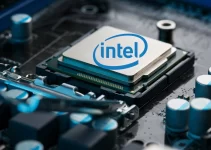How to Clean Laptop Speakers: A laptop’s speakers are a vital component. Without them, we would have to use earphones or headphones to listen to music.
But what if they become soiled? If you are like me, you have attempted to clean them yourself but failed miserably. There are several methods for cleaning speakers, but the most effective is to bring them to a professional.

However, if you want to clean your speakers yourself, you must first ensure that you have the proper equipment. Speakers come in numerous sizes and forms, making it difficult to determine which cleaning equipment to use.
Some individuals suggest using a vacuum cleaner, while others suggest using a damp microfiber cloth. Some individuals also suggest using a brush.
Read more: How to clean a laptop Screen
9 Tips How to Clean Laptop Speakers?
How to Clean Laptop Speakers – 8 Easy Steps
You spend a great deal of time cleaning it, but it continues to deteriorate. And finally, you give up and discard it.
This is wasteful, as laptop speakers are inexpensive. However, if you do not clean them, you will soon develop a large, unsightly crack in the case of your laptop. So, how are they cleaned? Here is an easy-to-follow guide for how to clean laptop speakers.
Read more How To Remove White Spot on Laptop Screen
Alcohol Dipped Q-tips to clean laptop speaker
You can use cotton swabs or Q-tips bathed in alcohol to clean the speakers on your laptop. Utilize a dry cloth to remove any dust or debris from the speaker’s surface. Apply mild pressure to the speaker while rubbing alcohol onto the Q-tips’ tips. Using alcohol-soaked cotton swabs or Q-tips, clean the speaker.
Via Tooth Brush
A nail brush can also be used, but it may cause damage to the speaker, so a soft toothbrush is the ideal option.
- Disconnect the speakers from the laptop.
- Insert the toothbrush into one of the speakers.
- Gently brush the bristles along the inside of the speaker.
Cleaning with Hairdryer
Before using a hairdryer to clean the speakers, the laptop must be unplugged, turned off, and the battery removed. Because Laptop batteries are fragile and easily destroyed.
If the hairdryer is set to a high temperature, it can harm the battery and screen of the laptop.
Clean laptop speakers Via Wet Wipes
Wipe surfaces with water to remove grime, dust, and fingerprints. Ensure that the laptop is off and disconnected from the power source.
- Remove the laptop’s battery.
- Wet one wipes in water ( Do not use Excess water ) and use it to clean the laptop’s speakers.
Using a Compressed Air Can
Applications for compressed air are especially prevalent in the automotive and industrial sectors. This type of air is utilised to feed engines with air. It is compressed and released at high pressure by a compressor.
Nevertheless, you can clean your speakers using a can of compressed air. Unplug the speakers from your PC. Insert the compressed air container into the speaker and blow air into the speaker. Now With a dry microfiber cloth, wipe the laptop’s speakers.
Read More: How Much Is It to Fix a Broken Keyboard
Via Lint Roller
You must use a lint roller with soft bristles or brushes with soft bristles. Place the lint roller inside of one of the speakers. Roll the lint roller around the interior of the speaker with care. Due to the potential for damage to the speaker, avoid applying excessive force.
Clean via USB Vacuum
The USB Vacuum has minimal suction power and is inexpensive. They are great for cleaning a variety of surfaces, such as laptops, keyboards, computer mice, and USB devices.
Insert the USB vacuum into the speaker of the laptop. Flip the laptop’s speakers over. Push the USB vacuum gently around the interior of the speaker. As excessive force may damage the speaker, take care not to exert too much force.
Read more How to Fix Black Spot on Laptop Screen
Advantages of Cleaning Laptop Speakers
There are numerous benefits to cleaning the speakers on a laptop. By cleaning them, you will eliminate any dirt, dust, or debris that could be producing sound problems. In addition, by cleaning them frequently, you will avoid them from becoming clogged with dust and debris, which would result in diminished sound quality.
- Clean your sound equipment regularly to prevent debris from accumulating and causing decreased sound quality.
- Avoid using harsh chemicals or cleaners on your sound equipment, as these can damage the equipment.
FAQs – How to Clean Laptop Speakers
How can I improve speaker quality?
There are several ways to enhance the quality of your speakers. One is to ensure that the speaker is in good condition. The speaker should also be placed in a well-ventilated environment.
Why do my laptop speakers sound buzzy?
There may be dust or other microscopic particles trapped inside your speakers, which could be the origin of their buzzing sound. When the speaker is activated, the vibrating particles produce a buzzing sound. If the speaker is humming, try blowing into it or cleaning the exterior surfaces using a can of compressed air.
Can dust damage speakers?
Excessive dust can harm speakers in a variety of ways. It can allow dust to enter the speaker and create a vacuum, so causing internal components to deteriorate. It can also cause the dust to behave as an acoustic insulator, reducing the sound quality of the speaker.
Do speakers lose quality over time?
The quality of a speaker can vary substantially depending on the individual speaker and its frequency of use. Some speakers may undergo a little decline in quality over time, but others will remain in pristine condition.
Conclusion
There are a multitude of methods about How to Clean Laptop Speakers. However, compressed air and lint rollers are the most effective ways to clean laptop speakers. By cleaning them on a weekly or monthly basis, you will eliminate any dirt, dust, or debris that may be producing sound problems. In addition, cleaning them frequently will keep them from becoming clogged with dust and debris, hence preventing a reduction in sound quality.





